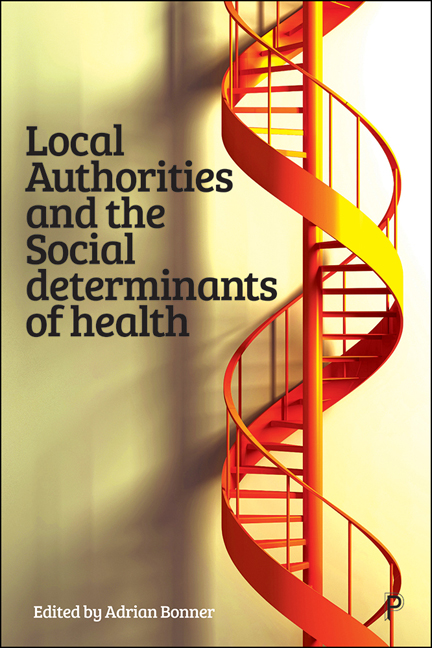Book contents
- Frontmatter
- Dedication
- Contents
- List of Figures, Tables and Boxes
- Notes on Contributors
- Acknowledgements
- Foreword
- Summary
- Introduction: Key Sociopolitical Changes Affecting the Health and Wellbeing of People
- Part I Health, Social Care and Community Wellbeing
- Part II The Role of Local Authorities in Promoting Health and Wellbeing in the Community
- Part III Local Authority Commissioning
- Part IV The Third Sector
- Part V Socio-Economic Political Perspectives
- Conclusion
- Appendix: COVID-19 Timeline
- Index
16 - The Role of the Third Sector Working With the Hard and Soft Structures of Public–Private Partnerships to Promote Individual Health and Reinvigorated, Healthier Communities
Published online by Cambridge University Press: 25 March 2021
- Frontmatter
- Dedication
- Contents
- List of Figures, Tables and Boxes
- Notes on Contributors
- Acknowledgements
- Foreword
- Summary
- Introduction: Key Sociopolitical Changes Affecting the Health and Wellbeing of People
- Part I Health, Social Care and Community Wellbeing
- Part II The Role of Local Authorities in Promoting Health and Wellbeing in the Community
- Part III Local Authority Commissioning
- Part IV The Third Sector
- Part V Socio-Economic Political Perspectives
- Conclusion
- Appendix: COVID-19 Timeline
- Index
Summary
Introduction
In this chapter, the authors consider how a recommitment to the ‘local authority’ of citizens and beneficiaries offers the possibility of revitalised and healthier individuals and reinvigorated and healthier communities, which are unachievable through the hard and soft structures of the commissioner/provider statutory approach. The pivotal dynamic of one-to-one relationships in these processes and their association with health outcomes (emotional, physical, spiritual) is identified alongside the opportunities and challenges in agencies engaging/re-engaging with the agency of citizens and beneficiaries. The chapter explores the tension between the ‘agency’ of citizens and beneficiaries that constitutes bottom-up power and ‘agencies’ with top-down power. The authors look at the benefits of embracing the expertise and investment of individuals and their communities in their personal and shared lives, how this can be supported and how it can be undermined.
People, relationships and communities
The origins of the quote that ‘Love is spelled T I M E’ may be disputed, but the truth of which it speaks is seldom in doubt (Ziglar, 1984). Time spent with others and others’ time spent with us can have a significant influence on wellbeing. The depth, duration and nature of our relationships is fundamental to a healthy society. Our sense of self-worth, self-efficacy and hope, the key attributes for unlocking our personal and community's potential, are fundamentally shaped by the depth, duration and nature of our relationships. Evidence from research in areas ranging from attachment theory (Bowlby, 1969) and adverse childhood experiences (Public Health Wales, 2016) through to the importance of keyworker/client relationships (for example in effecting positive outcomes in homelessness services, see Macdonald and Jackson, 1998) or the impact that just a few extra minutes with our general practitioner (GP) has on added value to health and wellbeing (Siddique, 2016) all support this idea.
The challenge for the empiricist is that one can measure time but not love. The empiricist's challenge is the commissioner, trustee, benefactor and fundraiser's frustration. Why? Because ‘love’ provides, supports, improves, inspires, motivates, energises, develops, heals and sustains. It is the means and the ends.
- Type
- Chapter
- Information
- Local Authorities and the Social Determinants of Health , pp. 301 - 318Publisher: Bristol University PressPrint publication year: 2020



